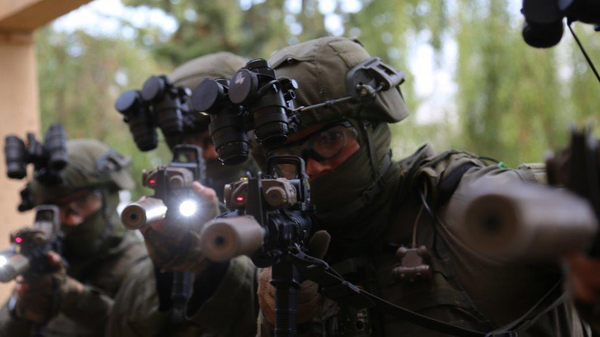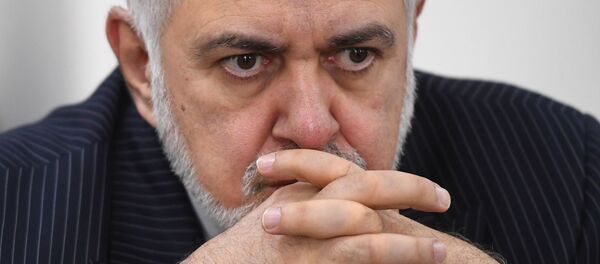Israeli Defence Minister Benny Gantz paid a visit to the Depth Corps – the Israel Defence Force (IDF) command charged with carrying out operations far beyond Israel’s borders and deep inside enemy territory in wartime.
The visit took place Sunday, and saw Gantz meeting with Depth Corps commander Itai Veruv and IDF Chief of Staff Aviv Kohavi.
“During the visit, the defence minister was shown changes that were made to the Corps since he decided to create it as chief of staff, the Corps’ operational plans, and the readiness of the different units that would carry them out,” his office said in a statement quoted by The Times of Israel.
Gantz reportedly “thanked the soldiers and commanders of the Corps and the units that operate under it for their activities and their preparedness to give a response to a variety of new and challenging operational scenarios that face the State of Israel and the IDF.”
In its reporting on the trip, the newspaper characterised the visit as a “veiled threat” to Iran, presumably over Tehran's alleged nuclear ambitions.
Gantz reactivated the Depth Corps in 2011 while serving as Israel’s defence minister. Before then, the command operated in the 1980s before being subordinated to the IDF’s Southern Command in 1986. The command was reactivated amid IDF concerns about Iran. Its planners were also reportedly tasked with accounting for lessons learned by the military during the 2006 war in Lebanon, which saw Hezbollah militia units fighting the IDF into a stalemate before a ceasefire was signed.
Depth Corps’ mission includes planning and carrying out strategic military operations deep inside enemy territory, including in countries bordering Israel, as well as countries further away, such as Iran, plus monitoring and preparing for ballistic missile attacks.
Spat Over Secrecy
Gantz got into a spat with Kohavi earlier this week after the chief of staff claimed that Iran was possibly just “weeks” away from building a nuclear bomb, blasted the Biden administration for its plans to return to the Iran nuclear deal, and promised to work on contingencies to ‘counter’ the threat. Gantz responded on Wednesday, accusing Kohavi of being indiscrete and saying that “red lines are drawn in closed rooms.”
Israeli officials have spent the better part of the last decade claiming that Iran was “weeks” or “months” away from building a nuclear bomb. In 2012, Prime Minister Benjamin Netanyahu warned that the Islamic Republic was just six or seven months from building the bomb, and urged then President Barack Obama to “place that red line before them now, before it’s too late.” The same year, he appeared at the United Nations General Assembly with a poster board with a diagram of a giant cartoon bomb on it, again claiming that Tehran was just “weeks” away from building a nuke.
Three years later, in 2015, Iran, the United States, Russia, China, Britain, France, Germany, and the European Union signed the Joint Comprehensive Plan of Action nuclear agreement, which promised Tehran sanctions relief in exchange for restrictions on the country’s nuclear energy programme. The Trump administration pulled out of the agreement in 2018 following intense lobbying by Israel. Hopes that Trump’s successor, Joe Biden, would quickly rejoin the agreement have been dashed amid disagreement between Tehran and Washington on which side should be the first to “show goodwill.”



